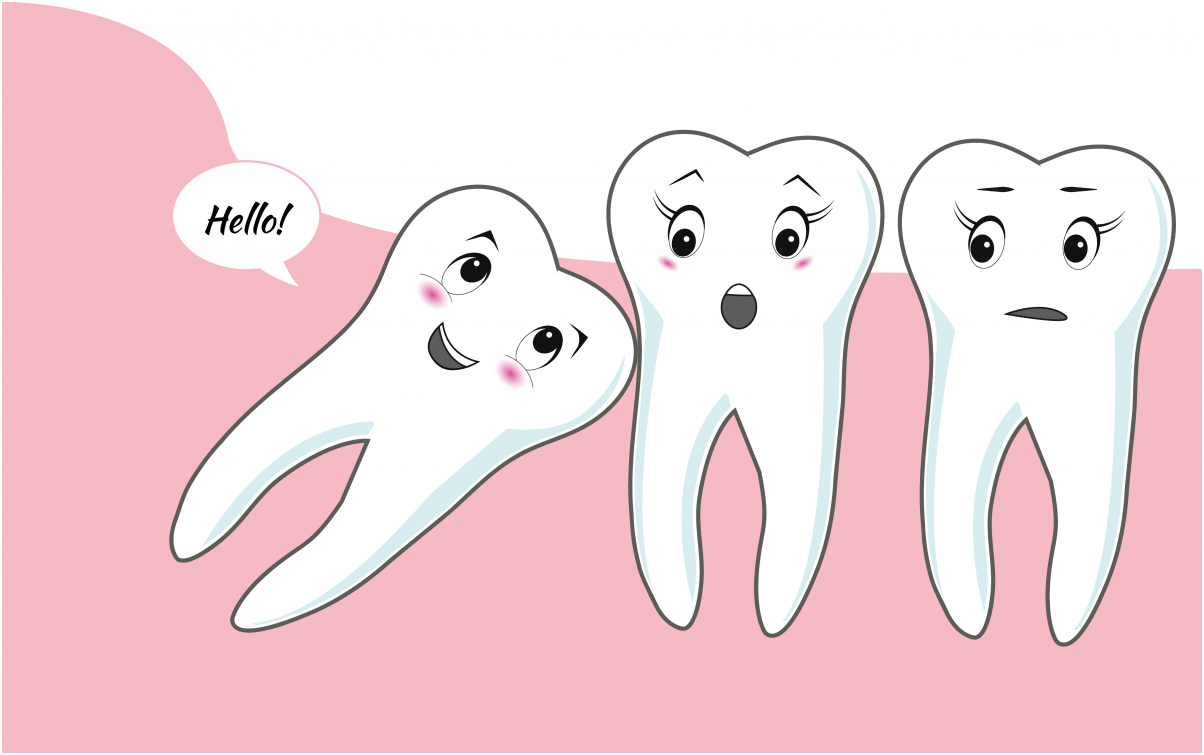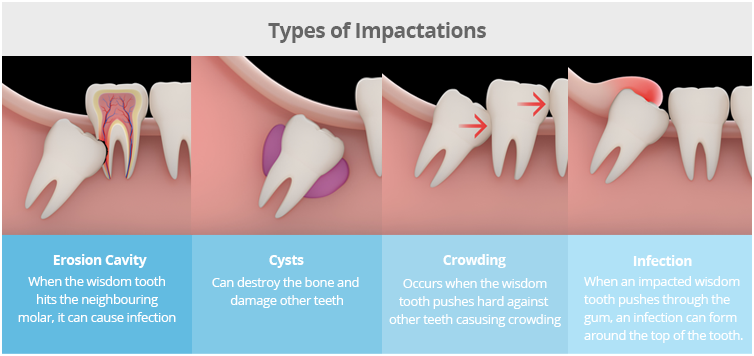Share

WISDOM TEETH
By Victoria Healthcare 12 April 2019

Wisdom teeth won’t make you smarter. They’re called that because they usually come in when you’re older, around 17 to 21. These teeth are in the very back of your mouth. You get two on top and two on the bottom as part of a complete set of 32 adult teeth.
Most people have them removed for one of these reasons:
- They’re impacted. Because they're so far back in your mouth, wisdom teeth may not come in normally. They can be trapped in your jawbone or gums, which can be painful.
- They come in at the wrong angle. They may press against your other teeth.
- Your mouth isn’t big enough. Your jaw has no room for an extra set of molars.
- You have cavities or gum disease. You may not be able to reach your wisdom teeth with your toothbrush or dental floss.
Removing Wisdom Teeth

Before Surgery
You’ll meet with your dentist to talk about the process. At this appointment, make sure you:
- Talk about any health problems you have.
- List any drugs you take on a regular basis.
- Ask any questions you have about the surgery.
- Discuss sedation and pain relief that you’ll have. You will get numbing medicine so it is painless, but you can also be sedated so you are sleepy and unaware of the procedure being done.
- Plan time off from work or school to have your surgery and rest afterward at home. Set up child care, pet care, or a ride home if needed.
During Surgery
Your surgery should take 45 minutes or less.
You’ll get one of these types of anesthesia so you don’t feel pain during the removal:
- Local, sometimes with Sedation: Your doctor will numb your mouth with a shot of Novocaine in your gums.You may also receive sedation to relax or even doze during surgery. You should feel alert again shortly afterward.
After Surgery
Plan time off from workor school to have your surgery. You’ll want to take it easy the rest of the day. Some patients can drive themselves to and from the surgery. But if you have sedation or pain drugs, someone will need to accompany you and do the driving, or call a taxi or ride service.
Most people have little to no pain afterward. It may take a few days to feel back to normal, but you can go back to schoolor work the next day.
As you leave the office, your dentist will give you a list of instructions to follow. These tips will help you heal quickly, have less pain or swelling, and fight infection.
Follow your dentist’s instructions for a quicker recovery. Here are some general tips for the first 3 days after surgery:
Dos:
- Use an ice pack on your face to curb swelling or skin color changes.
- Use moist heat for a sore jaw.
- Gently open and close your mouth to exercise your jaw.
- Eat soft foods like pasta, rice, or soup.
- Drink plenty of fluids.
- Brush your teeth starting the second day. Don’t brush against any blood clots.
- Take the drugs your doctor prescribes to ease pain or swelling.
- Call your doctor if you have a fever, or if your pain or swelling doesn’t improve.
Don’ts:
- Don’t drink through a straw. Sucking may loosen blood clots that help your mouth heal.
- Don’t rinse your mouth too harshly. Your doctor may suggest rinsing gently with saltwater.
- Don’t eat hard, crunchy, or sticky foods that may scratch your wounds.
- Don’t smoke. Smoking can slow your healing.
Wisdom teeth usually require removal. Although it is a procedure, it can be done painlessly and will not cost you much time or discomfort: and you will never, ever have trouble with those wisdom teeth again!
Source: webMD


